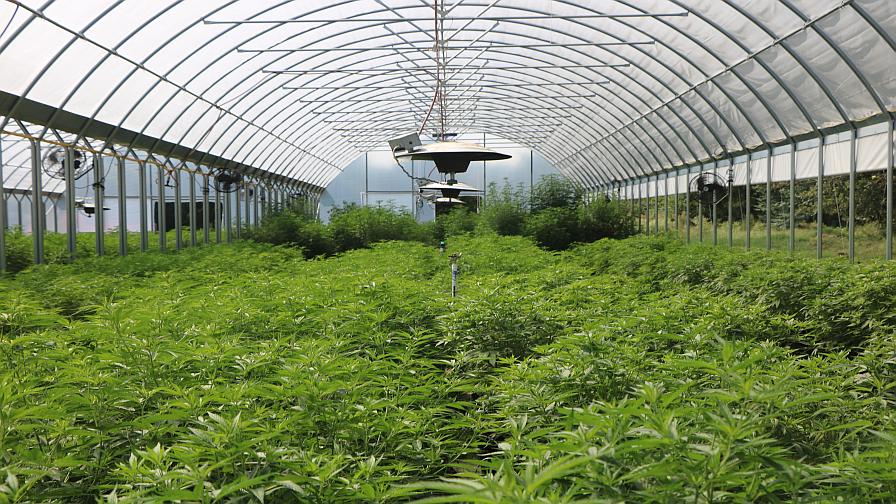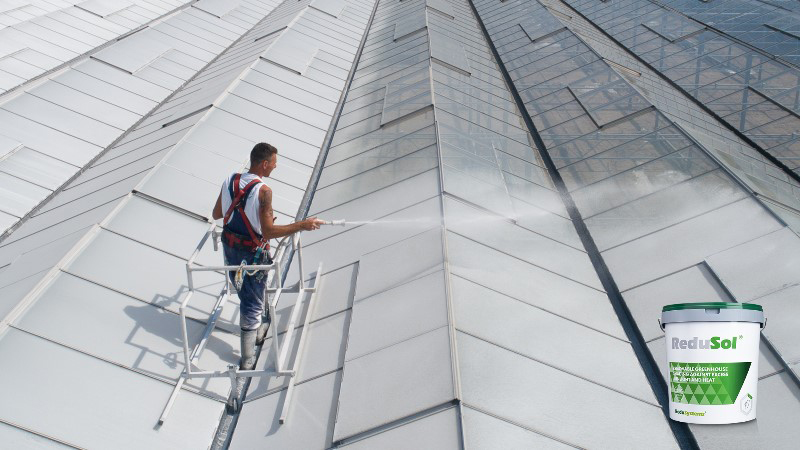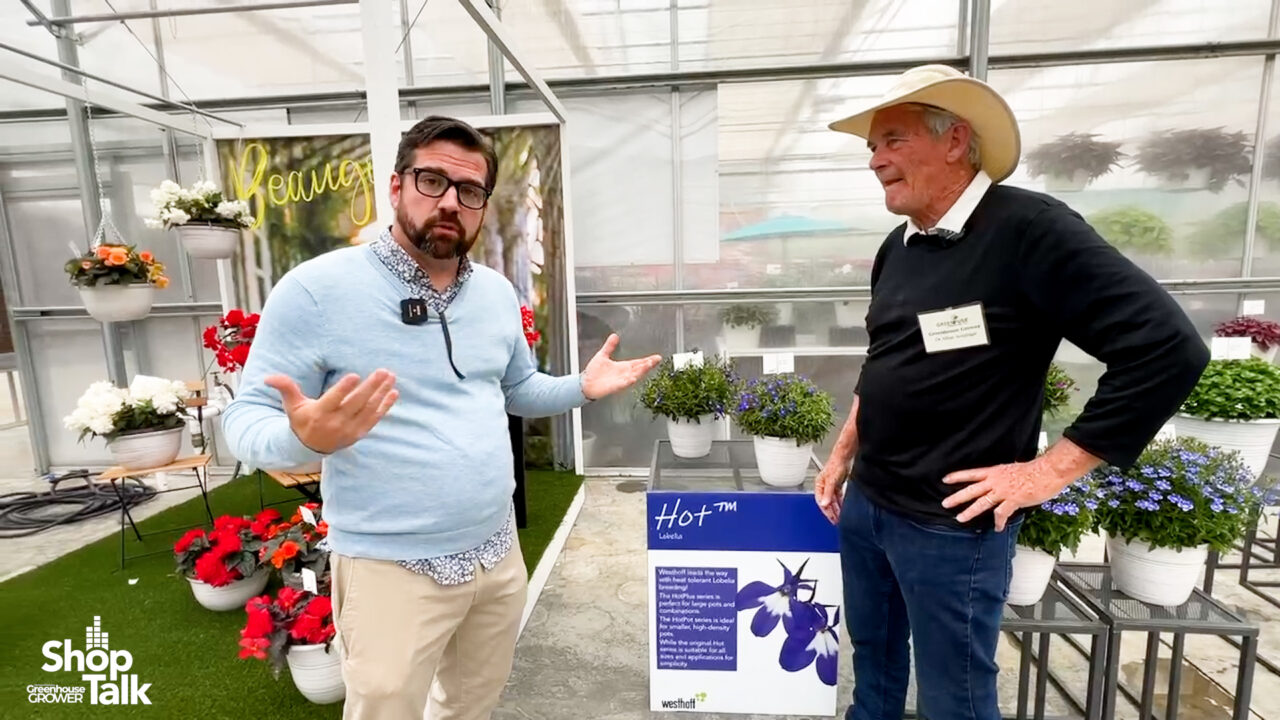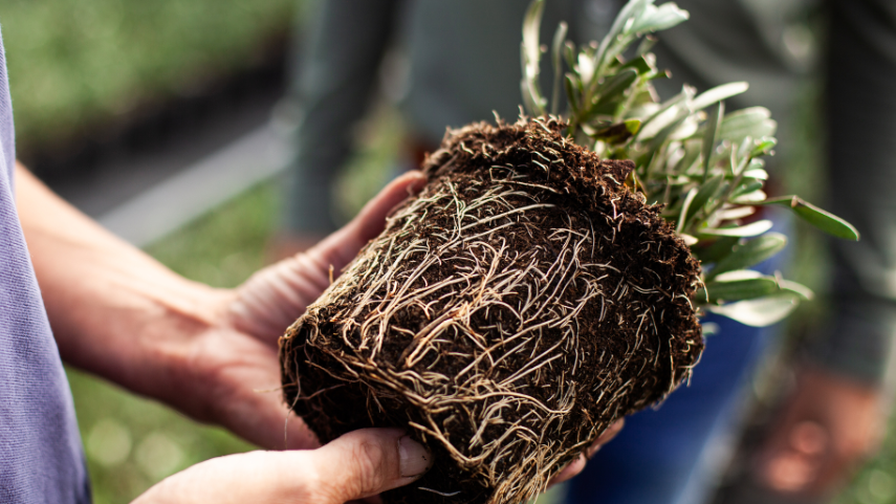Dutch Horticultural Developments
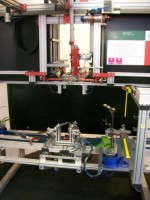
The Ministry of Agriculture, Nature and Food Quality of The Netherlands brought horticulture magazine editors from around the world together in October to showcase the latest innovations, systems and technologies Dutch growers currently employ. Editors visited Horti Fair, the FloraHolland Trade Fair and the Dutch Flower Auction, among other places throughout The Netherlands. We present the highlights here, and you’ll find more Dutch horticultural developments at GreenhouseGrower.com/OnLocation/International.
Horti Fair’s Top Product
Hortiquip’s new machine is a staking machine, and it uses laser technology to position stakes to support plants, including the automatic attachment of clips. It works something like this: Imagine you’ve potted your orchids with a growing media. Perhaps you prefer a media like bark that’s thick, jagged and unwilling to take stakes from greenhouse workers on a line without a fight. The staking machine simplifies the process, moving potted orchids along a conveyor line to a point where pots are rotated 360 degrees. A computer takes a laser scan of the pot and determines the best location for stakes. The technology is so advanced that the machine can pinpoint the best staking location even if less than an inch of pot space is available for stakes.
Hortiquip’s Remco Hmmerlaan says he’s conducted research that indicates growers will save an impressive 60 to 70 percent on labor. The jury choosing awards for the Horti Fair Innovation Awards was also impressed with the staking machine, awarding Hortiquip the Horti Fair Innovation Award in the Horti Tech category for 2009.
Just think of the time, energy and effort wasted inserting stakes into Phalaenopsis orchid pots. It’s a simple task, yes, but a time-staking one. And greenhouse workers are unlikely to stake all pots equally because the bark or stone media growers use presents different challenges from pot to pot.
The machine solves those issues, ensuring stakes are placed firmly and squarely into pots. The only job left for workers is clipping stakes to orchid stems. And it’s a task one greenhouse worker can handle on his or her own.
Digitizing The Flower Auction
Horti Fair isn’t the only trade show in which European growers exhibit and attend in mass these days. The FloraHolland Trade Fair in nearby Aalsmeer took place during the same October days as Horti Fair. The FloraHolland Trade Fair is increasingly becoming popular with growers, as seen by its rising exhibitor count. Horti Fair’s exhibitor count, meanwhile, is on the decline. One Horti Fair exhibitor mentioned the number of exhibit halls being used was down from 11 in 2008 to seven in 2009.
In addition to visiting the FloraHolland Trade Fair in Aalsmeer, editors got a taste of the Dutch Flower Auction. The auction hasn’t entirely changed over the years. Thousands of growers still deliver product daily to the auction between 4 p.m. the day before and 4 a.m. the day of the auction. Product is then stored in massive warehouses where buyers are free to view product before making bids later that morning. Once product is purchased, it’s driven to individual purchaser locations on site before being packed and shipped away to its destination.
Editors visited the auction on a Thursday morning and viewed two auction rooms: One was nearly full of buyers and a second contained only a few people. Buyers in that second auction room now buy based on photographs rather than having live product carted into the room each day. Buyers are extremely familiar with the product they’re purchasing, and they have great trust in the growers, so there’s no reason to check the quality of the product they’re buying early each morning in the warehouses or auction rooms.
More buyers are also bidding online. In fact, nearly 60 percent of all product today is auctioned off the Internet. An even more astounding 85 percent of product is exported from The Netherlands by midnight the day it’s auctioned.
Supply Chain Changes
The auction doesn’t include every Dutch grower, though. Herman de Boon, chairman of the Dutch Wholesale and International Trade Federation and the Dutch Flower Wholesale Association, discussed recent changes The Netherlands has experienced in its supply chain.
“Some growers have gone their own way,” de Boon says, meaning away from the flower auction system. “Now, they are completely dependent on the traders with whom they work.”
The auction system, de Boon says, is successful only if all growers participate. If growers decide to go around the auction system, then all growers are less competitive. And the more growers go their own way, the less competitive growers will get.
Still, the fact growers can participate in the auction system from the comfort of their homes or offices is attractive to those who currently participate and to those who may be leaning elsewhere in the future.
“It’s clear we have digitalized the auction clock, which means it’s possible everywhere in the world to buy directly on the Dutch auction system,” de Boon says. “If you combine this with our import/export orientation, you have a nice place where everyone can find everything they want in the flower business.”
Vegetables, in some cases, are a different Dutch story. Before meeting de Boon, editors visited The Greenery, a major cooperative of 1,250 fruit and vegetable growers. The Greenery, de Boon says, has hurt the flower auction and competition because growers are becoming wholesalers, wholesalers are becoming growers and some breeders are even going around the whole supply chain to reach the retailer directly.
“Retailers put a lot of pressure on the whole chain to get vegetables to them directly and not with the auction,” de Boon says.




